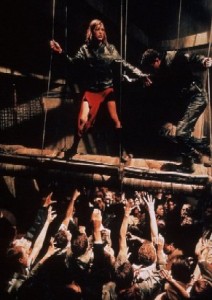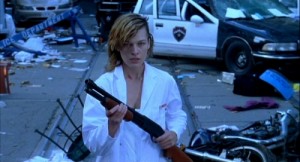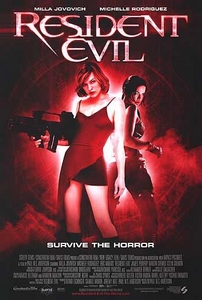ZOMBIE MOVIES RISE AGAIN
Nothing on film scares me quite like Zombies. Frankenstein, Dracula, werewolves and even stories about demons rarely tickle the hair on the back of my neck like those depicting the walking dead. My most chilling nightmares consist of those slow, shambling masses of decayed flesh, groping with vacant, hollow eyes, desperate for the warmth and vitality I possess, which they so evidently lack; perhaps this is why the “Dead” trilogy by George A. Romero (Night of the Living Dead, Dawn of the Dead and Day of the Dead) still affects me, as few horror films can.
“When you were dead in your sins and in the uncircumcision of your sinful nature, God made you alive with Christ.” – Colossians 2:13
I surmise this is why the images strike such a deep, subconscious chord. My previous state, my pre-Christian walk through life without any true hope, is not dissimilar: blind, groping in vain for sustenance that doesn’t satisfy, wallowing in my own corruption, rotting in my own filth, and capable of causing nothing but suffering and death. Previous to an encounter with our savior, the image painted in scripture is that we are all zombies, shuffling in step with our cursed fellows: takers and not givers, consumers but not creators. Before I could even comprehend what was sending chills up my spine, these cinematic images served as a chilling reflection of my own fallen condition; even now, they still provide a frightening glimpse of what I have been, and a behavior that is still easy to slip into.
“But because of his great love for us, God, who is rich in mercy, made us alive with Christ even when we were dead in transgressions – it is by grace you have been saved.” – Ephesians 2:5
 That said, Resident Evil does little to expound on such a theological parallel; I’d be stretching it if I said there were deep layers of subtext and nuance in this unashamed adaptation of a popular video game. Still, considering its genre and source material, director Paul Anderson offers a few unique twists. In his video game/movie Mortal Kombat, director Anderson proved that a video game movie could be more than a waste of time (it was fun); in the horror feature Event Horizon he managed to put an unusual spin on a seemingly routine science fiction story. With Resident Evil, the two of these things come together.
That said, Resident Evil does little to expound on such a theological parallel; I’d be stretching it if I said there were deep layers of subtext and nuance in this unashamed adaptation of a popular video game. Still, considering its genre and source material, director Paul Anderson offers a few unique twists. In his video game/movie Mortal Kombat, director Anderson proved that a video game movie could be more than a waste of time (it was fun); in the horror feature Event Horizon he managed to put an unusual spin on a seemingly routine science fiction story. With Resident Evil, the two of these things come together.
Milla Jovovich plays Alice, a woman who wakes up with amnesia and an unshakeable sense of dread. She is taken almost literally down a rabbit-hole into an underground lair of zombies and genetic mutations, the result of a “lab accident”. Alice struggles alongside soldiers and scientists harboring varied agendas and layers of deception. Along the way, she finds she has skills and giftings that go far beyond the average woman, and begins to remember in flashes her part in the horrific affair. Amnesia serves as a plot device for the moviegoer, and here it works; the viewer uses Alice’s character as both P.O.V. and fantasy fulfillment – much like a video game – coming to understand the past and present of this narrative’s reality and their context within it, while (naturally) displaying superheroic fighting skills and an unusual aptitude for firearms. As with many similar zombie narratives, the lumbering undead ultimately become lethal distractions… as ultimately the humans themselves (and the diabolical corporation behind the virus) become the real enemies. The film ends literally begging for a sequel, entreating the audience to come back for more.
 More than simply working to parallel the feel of a video game, the “unfolding memory” trope is the best device this movie employs, the kind a discerning viewer will recognize as an opportunity for self-examination. Alice is forced to confront what kind of person she has been, what consequences her actions have had on others, who she’s chosen as friends, foes, or lover… and how many false faces she’s worn. From there, the question looms: what kind of person is she going to be? It’s the same device the Bourne movies use to suggest transformation, a turning in life – what a Christian would call repentance. The transition is not only met by opposition from all sides, but a key moment of temptation to return to old ways and relationships, to sell out or “buy in” to a new form of selfishness.
More than simply working to parallel the feel of a video game, the “unfolding memory” trope is the best device this movie employs, the kind a discerning viewer will recognize as an opportunity for self-examination. Alice is forced to confront what kind of person she has been, what consequences her actions have had on others, who she’s chosen as friends, foes, or lover… and how many false faces she’s worn. From there, the question looms: what kind of person is she going to be? It’s the same device the Bourne movies use to suggest transformation, a turning in life – what a Christian would call repentance. The transition is not only met by opposition from all sides, but a key moment of temptation to return to old ways and relationships, to sell out or “buy in” to a new form of selfishness.
There’s even some appropriately playful imagery in that the dress Alice dons at the beginning of the film is red; as she endures revelation, transformation, and temptation – fighting inner and outer demons – Alice exits the rabbit hole dressed in white, ready to take on anything. I don’t need to spell out the imagery of being covered in red, underground, and emerging into the light transformed, redressed in white. Evil may still be in residence, but she’s headed for a new address.
-
Do you ever take a step back and assess who you’ve been thus far in life, and how you got there?
-
Are there things you have done, or been complicit in, that have hurt and harmed others?
-
What would it look like to turn from these things, to seek and serve and sacrifice?
-
Bereft of amnesia or other plot devices, is it possible to hit the “reset” button on your life, heart and soul?
-
If we’re covered in red, how do we get washed/redressed in white?
-
Is there nothing that might wake you from the life you’re shambling in?



